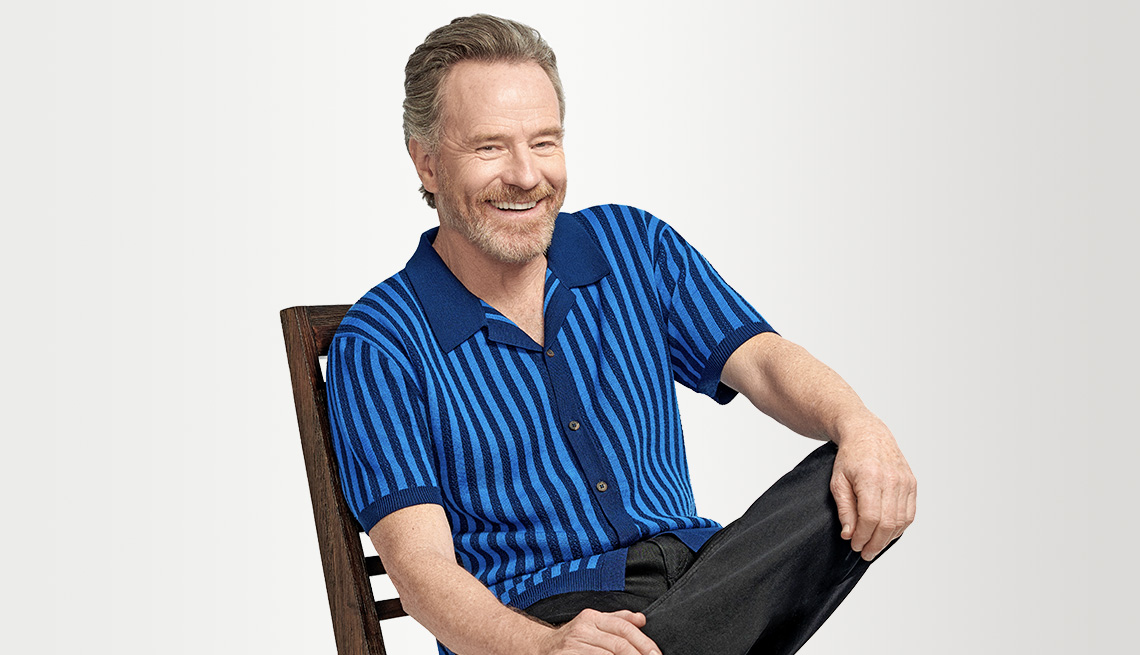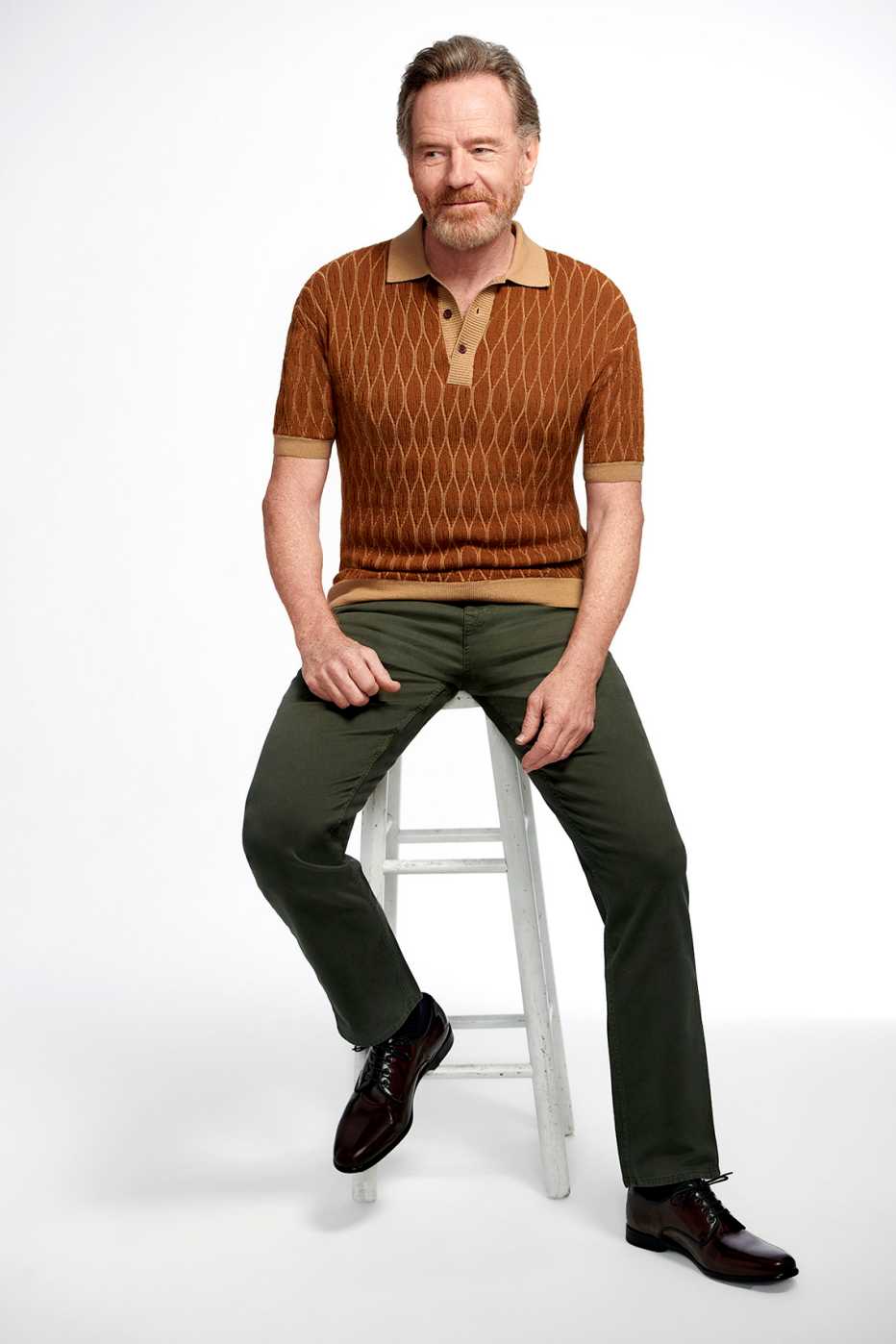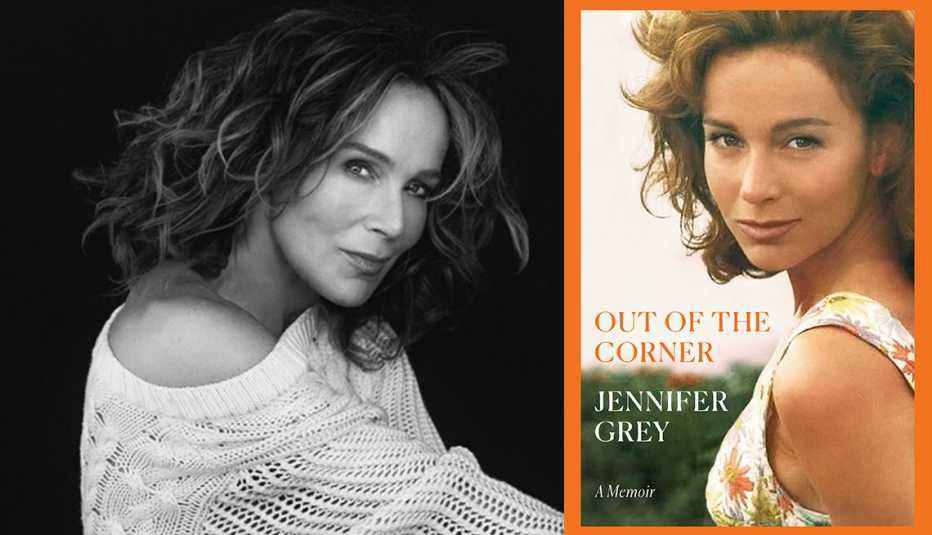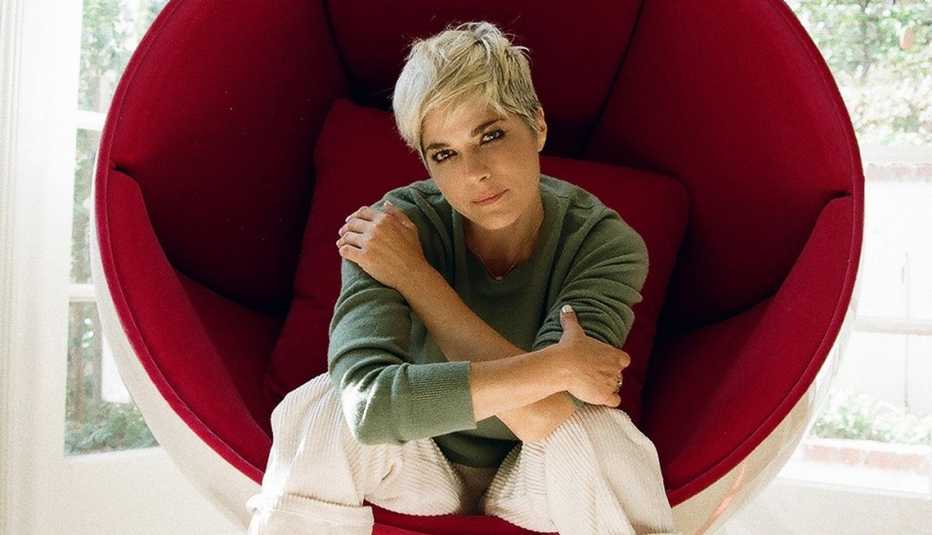AARP Hearing Center
Sneaky Pete
My parents were together until I was 11 years old. My dad would always be a coach in Little League or something. We’d put up Christmas lights and play in the yard with our neighbors. It was a good life until my dad, who was an actor himself, had the typical midlife crisis. He had affairs, and my mother became an alcoholic and invested her time and energy in the affections of men — she was like Blanche DuBois. I could manipulate her easily because she was only a small percent engaged in my life. She never looked at any of my report cards. We never had a discussion about what was after high school. My uncle gave me the nickname Sneaky Pete [which later inspired Cranston to cocreate and play a lead role in an Amazon show of that name] because I would circumvent accountability. In high school I had the temerity to walk up to a teacher and say, “What do I need to do to get a C?” I can only imagine how much that must take out of a teacher’s armor. I thought about that moment in the pilot episode of Breaking Bad when I looked out and saw that sea of students who were completely uninterested.
Biker life
My brother and I took a two-year motorcycle trip in the mid-’70s and would look for work along the way. Anytime we saw a carnival, we’d stop. There are always job openings because it’s so transient, and there’s no paperwork. The carny name for the game booth is a “joint.” If we used that lingo, they hired us. There are three different kinds of joints. There’s one that is impossible to win, but the prize is really good. Shooting the red star with a machine gun is almost impossible to win. Then there’s one, it’s not so easy to start, but you could work up to a pretty good prize. That’s when you’re playing a lot. And then there’s one where, “Hey, I can do this,” but the prize is worth a nickel and you’re spending a dollar and a half. And then there’s after hours, after the carnival shuts down. It was kind of a wild sexual celebration.
Finding your calling
We didn’t really have a father, so my brother and I subconsciously navigated toward father figures. Police officers were a very manly thing to a young person. I got involved in the Police Explorers program. It almost seemed like the choice was made for me. I didn’t have any money, so I was going to go to junior college, then to UCLA to continue to study administration of justice, then go into the LAPD. And I took one acting class, and the very first week I happened to be reading opposite a very attractive girl. And the script said, “A young couple is making out on a park bench.” So she was making out with me and I thought, Doing my job well in this class means making out with this girl and making it believable? That never happened in police-science courses.
Work, work, work
I’m a working-class guy. I spent a year living with my grandparents as a kid. They made me stop watching TV, and I thought, This is going be horrible. But I didn’t miss it. I had to work next door collecting eggs from a ranch, and l loved having a job and responsibility. With them, it was: You acknowledge a birthday or an accomplishment, then get back to work. You never had the luxury of lounging in accomplishment. That helped me tremendously when I was an actor in my early 20s. When you have an audition, there are always going to be people who are more talented than you. And there will always be people who are less talented than you. Where you line up in that ratio, who knows? But what you can control is how much time and energy you put into your work. I would always vow that no one was going to outwork me. I’d keep preparing, preparing, preparing. Whenever I hear of actors doing drugs or alcohol or going to parties and going on vacations instead of putting in the work, I’m like, OK, good. Go ahead.
Finding the core
When I’m collecting ideas for delivering a character, at first I think, Oh, I can use this little idiosyncrasy or that little idiosyncrasy. And you collect them almost like you’re putting together a bouquet of flowers. Then you go, “I think it’s too busy. I’m going to put some of these back.” It could be your weight, your facial hair, bags under your eyes. I also always write a stream-of-consciousness backstory to a character. Where was he born? What was his economic situation? What was his relationship to his parents? I write it out on a legal pad. The role feels more connected to me that way.
Saying yes (and no)
I never rejected anything the writers came up with on Malcolm in the Middle. [Show creator] Linwood Boomer said, early on, “I’ll never ask you to do something I wouldn’t do.” But then this one time he said, “I’m going to preface this by saying, I wouldn’t do this. But would you wear 10,000 bees?” I said, “Wow. How cool.” The year I had lived with my grandparents, we had beehives. So I was not afraid. I discovered that if you’re wearing 10,000 bees, when you’re stung, you’re not at all surprised. And most of the pain of a beesting comes from the element of surprise. But on Malcolm, one bee went down into my pants. The beekeeper on set had said, “If you ever get stung, let me know and I’ll scrape the stinger out.” You never want to pinch the stinger because more venom goes into the body. So I said, “I think I was stung.” And he’s at the ready. “Where?” I go, “My testicles.” He goes, “Sorry, you’re on your own.”
Competitors become colleagues
When you’re in your 20s, a whole bunch of wannabe actors get off the bus to try to work in Hollywood or New York. When you’re in your 30s, there are a lot fewer of them left, and when you’re 40, even fewer. Now, at 66, I’m looking around and it’s mostly friends left. And it’s like, “Hey, I saw you do that thing. That was great. Good for you.” Most likely I was up for the role as well. But who cares?






































































